English worksheets > contributions by Roman Svozilek
|
The author |
|

Roman Svozilek

|
Hello, I teach adults only but hope you�ll find some of my worksheets useful :-) I also publish articles on www.helpforenglish.cz That�s why you can find all my worksheets from here on www.helpforenglish.cz too.
Points: 4175
|
|
order results:
newest first -
most downloaded first
-
alphabetically -
random order |
|
Printables |
PowerPoints |
Online exercises |
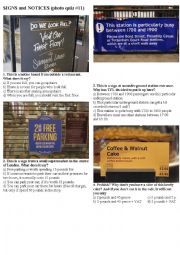
|
SIGNS AND NOTICES #11 (10 photos on 2 pages)
Another set of 10 photographs from Britain. For each photo there is one question and four answers. Only one answer is correct, of course. The key is included. There are many more similar sets available, just check my contributions. TO MODERATORS: I also publish on www.helpforenglish.cz under the same name and you can find all my worksheets there to...
Level: intermediate
Age: 8-100
Type: worksheet
Downloads: 103
|
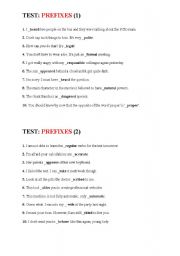
|
PREFIXES (tests)
Three tests with 30 questions including key (two pages). (I also publish at www.helpforenglish.cz, where you can see this worksheet as well)
Level: intermediate
Age: 12-17
Type: worksheet
Downloads: 11
|
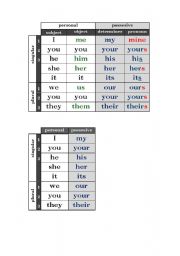
|
PERSONAL and POSSESIVE PRONOUNS
This flash-card could be useful for students who have problems with personal and possessive pronouns.
Level: elementary
Age: 10-17
Type: flash-card
Downloads: 6
|
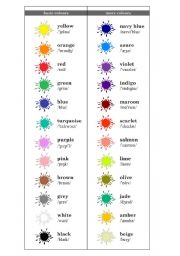
|
COLOURS (bookmark)
This is a bookmark with 24 COLOURS (12 basic on the left and 12 more on the right) with TRANSCRIPTION. Students can cut the bookmark out, FOLD IT IN THE MIDDLE, glue together and use it whenever they need or feel like it. TO MODERATORS: I also publish on www.helpforenglish.cz under the same name and you can find all my worksheets there too, so plea...
Level: elementary
Age: 6-17
Type: flash-card
Downloads: 73
|
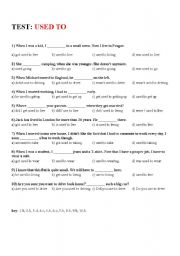
|
USED TO (test)
TEST with �USED TO� expressions, icluding key.(I also publish at www.helpforenglish.cz, where you can see this worksheet as well)
Level: intermediate
Age: 10-17
Type: worksheet
Downloads: 10
|
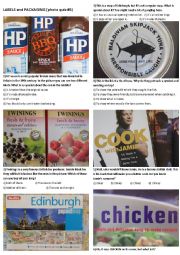
|
LABELS AND PACKAGING #5 (10 photos on 2 pages)
Another set of 10 photographs of various products from the UK. For each photo there is one question and four answers. Only one answer is correct, of course. The key is included. Part ONE is HERE: http://www.eslprintables.com/printable.asp?id=686681#thetop. Part TWO is here: http://www.eslprintables.com/printable.asp?id=686971#thetop. Parth THREE is...
Level: intermediate
Age: 8-100
Type: activity-card
Downloads: 89
|
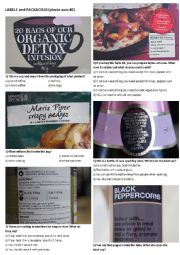
|
LABELS AND PACKAGING #2 (10 photos on 2 pages)
Another set of 10 photographs of various products from the UK. For each photo there is one question and four answers. Only one answer is correct, of course. The key is included. Part ONE is HERE: http://www.eslprintables.com/printable.asp?id=686681#thetop. For more similar tests see my other contributions. TO MODERATORS: I also publish on www.helpf...
Level: intermediate
Age: 8-100
Type: activity-card
Downloads: 101
|
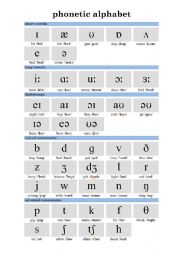
|
PHONETIC ALPHABET
This is a simply flashcard with PHONETIC ALPHABET devided into groups. TO MODERATORS: I also publish on www.helpforenglish.cz under the same name and you can find all my worksheets there too, so please consider this fact before reporting my worksheets.
Level: elementary
Age: 10-17
Type: flash-card
Downloads: 145
|
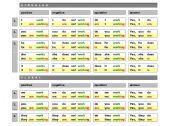
|
PRESENT TENSES: simple vs. continuous
I always print this on a cardboard for my beginner students. They are more than welcome to use it during lessons as well as at home.
Typical mistake they make is: I LIVING or I AM LIVE
This card should help :-) (I also publish at www.helpforenglish.cz, where you can see this worksheet as well)
Level: elementary
Age: 10-100
Type: flash-card
Downloads: 205
|
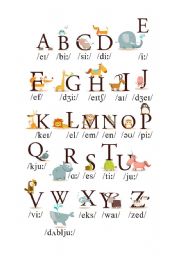
|
ALPHABET (animals)
This is the English ALPHABET with TRANSCRIPTION of the letters which are represented by various animals. The animals are as follows: ant, bird, cow, dog, elephant, fox, giraffe, horse, ibex, jellyfish, kangaroo, lion, monkey, newt, owl, penguin, quail, rhino, snail, turtle, unicorn, vulture, whale, "x-ray", yak, zebra. TO MODERATORS: I also publish...
Level: elementary
Age: 6-17
Type: flash-card
Downloads: 45
|
|
|
|
|